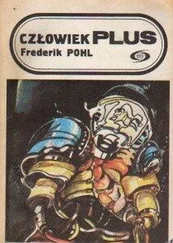The whole human race was in trouble. Energy was in short supply the world over, which meant fertilizer was expensive, which meant people were hungry, which meant explosively dangerous tensions. The world’s resources were none too ample for the bare necessity of keeping billions of people alive. We had to find ways to divert capacities that were badly needed elsewhere to long-range planning. We set up three separate think tanks and gave them all the facilities we could steal from daily needs. One explored options for solving the growing tensions on Earth. One was charged with setting up refuges on Earth itself, so that even if a thermonuclear war did occur a small fraction of us could survive.
The third looked into extraterrestrial possibilities.
In the beginning it seemed as though we had a thousand options to choose from, and each of the three major tracks had branches that looked hopeful. One by one the tracks closed off. Our best estimates — not the ones we gave the President of the United States, but the private ones we showed to nobody but ourselves — were of point nine to ten nines probability of thermonuclear war within a decade; and we closed down the center for solving international tensions in the first year. Setting up refuges was a little more hopeful. It developed that worst-case analysis indicated a few places on the Earth that would be unlikely to experience direct attack — Antarctica, parts of the Sahara, even some of Australia and a number of islands. Ten sites were selected. Each one had only a point zero one or less probability of being destroyed; if all ten were considered, the probability that they would all be destroyed was relatively insignificant. But fine-grain analysis showed that there were two flaws. For one, we could not be sure how much long-life isotope would remain in the atmosphere after such a war, and the indications were that there would be excessive levels of ionizing radiation for as much as a thousand years. Over that time scale, the probability that even one of the refuges would survive became far less than point five. Worst of all, there was the necessity for capital investment. To build the refuges underground and fill them with the immense quantity needed of complex electronic equipment, generators, fuel reserves and so on was, as a practical matter, impossible. There was no way for us to get the money.
So we terminated that think tank and put all the resources we could manage into extraterrestrial colonization. At the beginning, that had looked like the least hopeful solution of all.
But — almost! — we had managed to make it work. When Roger Torraway landed, that completed the first and hardest step. By the time the ships that were following him reached their positions, in orbit or on the surface of the planet, we would be able, for the first time, to plan for a future, with the survival of the race assured.
So we watched with great satisfaction as Roger stepped out on the surface of the planet.
Roger’s backpack computer was a triumph of design. It had three separate systems, cross-linked and sharing facilities, but with enough redundancy so that all systems had point nine reliability at least until the 3070 backup computer reached orbit. One system mediated his perceptions. Another controlled the subsystems of nerve and muscle that let him walk and move. The third telemetered all of his inputs. Whatever he saw, we saw on Earth.
We had gone to some trouble to arrange this. By Shannon’s Law there was not enough band width to transmit everything, but we had included a random sampling feature. Approximately one bit per hundred was transmitted — first to the radio in the landing craft, where we had assigned one channel permanently for that purpose. Then it was rebroadcast to the orbiter, where General Hesburgh floated, watching the television screen while the calcium oozed out of his bones. From there, cleaned and amplified, it was burst-transmitted to whichever synchronous satellite of Earth was at that moment locked into both Mars and Goldstone. So what we all saw was only about one percent “real.” But that was enough. The rest was filled in by a comparison program we had written for the Goldstone receiver. Hesburgh saw only a series of stills; on Earth we broadcast what looked exactly like on-the-spot movies of whatever Roger saw.
So all over the Earth, on television sets in every country, people watched the beige and brown mountains that rose ten miles tall, saw the glint of Martian sunlight off the window frames of the lander, could even read the expression on Father Kayman’s face as he rose from prayer and for the first time looked out on Mars.
In the Under Palace in Peking the great lords of New People’s Asia interrupted a planning session to watch the screen. Their feelings were mixed. It was America’s triumph, not theirs. In the Oval Office President Deshatine’s joy was pure. Not only was the triumph American, it was personal; he was identified forever as the President who had established humanity on Mars. Almost everybody was at least a little joyous — even Dorrie Torraway, who sat in the private room at the back of her shop with her chin in her hands, studying the message of her husband’s eyes. And of course in the great white cube of the project outside of Tonka, Oklahoma, everyone left on the staff watched the pictures from Mars almost all the time.
They had plenty of leisure for that. They didn’t have much else to do. It was astonishing how empty the building became as soon as Roger was out of it.
They had all been rewarded, from the stockroom boys up: a personal commendation for everyone from the President, plus a thirty-day bonus leave and a jump in grade. Clara Bly used hers to finish up her long-delayed honeymoon. Weidner and Freeling took the time to write a rough draft of Brad’s paper, transmitting every paragraph to him in orbit as it came off their typewriters, and receiving his corrections via Goldstone. Vern Scanyon, of course, had a hero’s tour with the President, in fifty-four states and the principal cities of twenty foreign countries. Brenda Hartnett had appeared on television twice with her kids. They had been deluged with gifts. The widow of the man who had died to put Roger Torraway on Mars was now a millionaire. They had all had their hour of fame, as soon as the launch got off and Roger was en route, especially in those moments just before the landing.
Then the world looked out at Mars through the eyes of Roger, and the senses of the brother on Roger’s back, and all their fame blew away. From then on it was all Roger.
We watched too.
We saw Brad and Don Kayman in their suits, completing the pre-egress drill. Roger had no need of a suit. He stood on tiptoe at the door of the lander, poised, sniffing the empty wind, his great black wings hovering behind him and soaking in the rays of the disconcertingly tiny, but disconcertingly bright, sun. Through the TV pick-up inside the lander we saw Roger silhouetted against the dull beige and brown of the abrupt Martian horizon…
And then through Roger’s eyes we saw what he saw. To Roger, looking out on the bright, jewel-like colors of the planet he was meant to live on, it was a fairyland, beautiful and inviting.
The lander had stretched out skeletal magnesium steps to stroke the surface of Mars, but Roger didn’t need them. He jumped down, the wings fluttering — for balance, not for lift — and landed lightly on the chalky orange surface, where the wash of the landing rockets had scoured away the crust. He stood there for a moment, surveying his kingdom with the great faceted eyes. “Don’t rush things,” advised a voice in his head that came from Don Kayman’s suit radio. “Better go through the exercise list.”
Roger grinned without looking around; “Sure,” he said, and began to move away. First he walked, then trotted; then he began to run. If he had sped through the streets of Tonka, here he was a blur. He laughed out loud. He changed the frequency responses of his eyes, and the distant towering hills flashed bright blue, the flat plain a mosaic of greens and yellows and reds. “This is great!” he whispered, and the receivers at the lander picked up the subspoken words and passed them on to Earth.
Читать дальше












